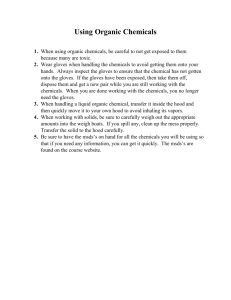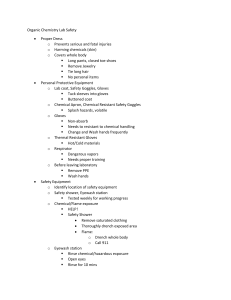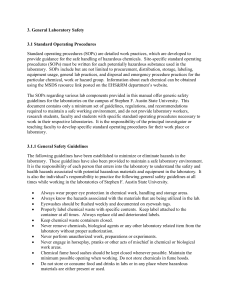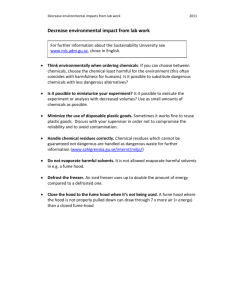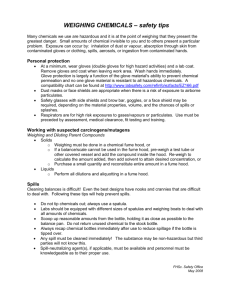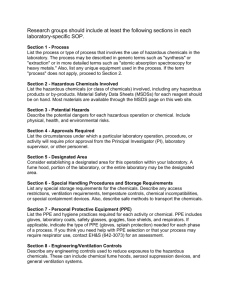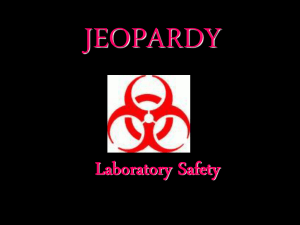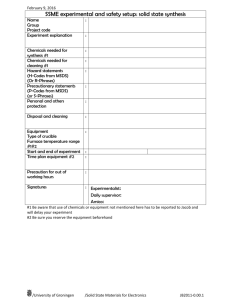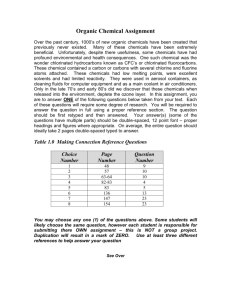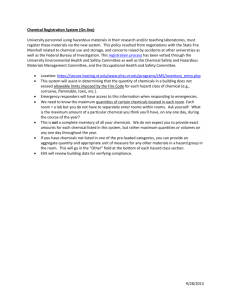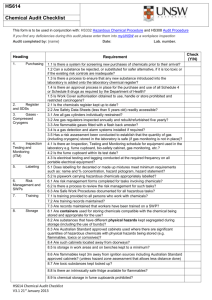risk assessment
advertisement
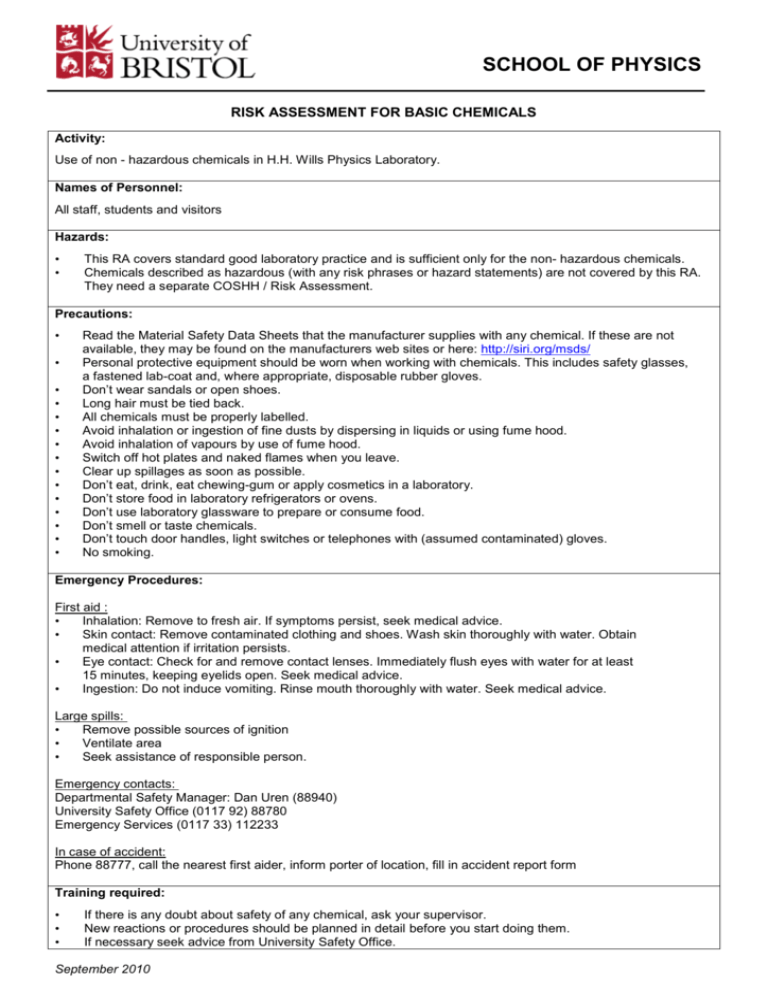
SCHOOL OF PHYSICS RISK ASSESSMENT FOR BASIC CHEMICALS Activity: Use of non - hazardous chemicals in H.H. Wills Physics Laboratory. Names of Personnel: All staff, students and visitors Hazards: • • This RA covers standard good laboratory practice and is sufficient only for the non- hazardous chemicals. Chemicals described as hazardous (with any risk phrases or hazard statements) are not covered by this RA. They need a separate COSHH / Risk Assessment. Precautions: • • • • • • • • • • • • • • • Read the Material Safety Data Sheets that the manufacturer supplies with any chemical. If these are not available, they may be found on the manufacturers web sites or here: http://siri.org/msds/ Personal protective equipment should be worn when working with chemicals. This includes safety glasses, a fastened lab-coat and, where appropriate, disposable rubber gloves. Don’t wear sandals or open shoes. Long hair must be tied back. All chemicals must be properly labelled. Avoid inhalation or ingestion of fine dusts by dispersing in liquids or using fume hood. Avoid inhalation of vapours by use of fume hood. Switch off hot plates and naked flames when you leave. Clear up spillages as soon as possible. Don’t eat, drink, eat chewing-gum or apply cosmetics in a laboratory. Don’t store food in laboratory refrigerators or ovens. Don’t use laboratory glassware to prepare or consume food. Don’t smell or taste chemicals. Don’t touch door handles, light switches or telephones with (assumed contaminated) gloves. No smoking. Emergency Procedures: First aid : • Inhalation: Remove to fresh air. If symptoms persist, seek medical advice. • Skin contact: Remove contaminated clothing and shoes. Wash skin thoroughly with water. Obtain medical attention if irritation persists. • Eye contact: Check for and remove contact lenses. Immediately flush eyes with water for at least 15 minutes, keeping eyelids open. Seek medical advice. • Ingestion: Do not induce vomiting. Rinse mouth thoroughly with water. Seek medical advice. Large spills: • Remove possible sources of ignition • Ventilate area • Seek assistance of responsible person. Emergency contacts: Departmental Safety Manager: Dan Uren (88940) University Safety Office (0117 92) 88780 Emergency Services (0117 33) 112233 In case of accident: Phone 88777, call the nearest first aider, inform porter of location, fill in accident report form Training required: • • • If there is any doubt about safety of any chemical, ask your supervisor. New reactions or procedures should be planned in detail before you start doing them. If necessary seek advice from University Safety Office. September 2010 SCHOOL OF PHYSICS Access Restrictions None Storage: No restrictions. Waste disposal: • • • Do not put solvents or concentrated acid down the sink. Dispose of glass in “sharps” box Do not put anything but waste paper in the standard bins. Signature of Competent Person Name in print Date: September 2010
